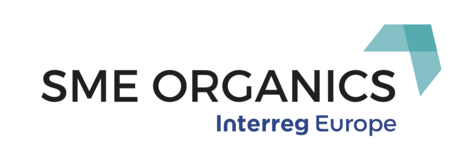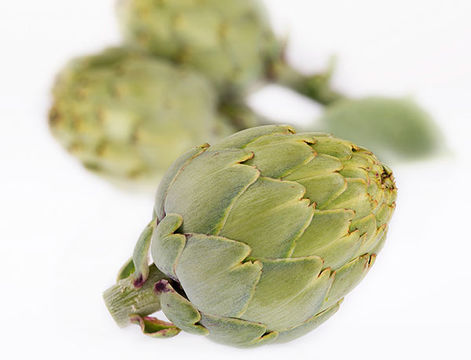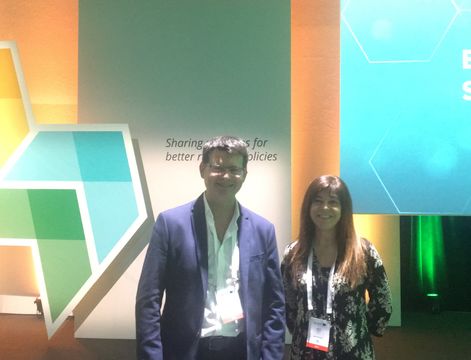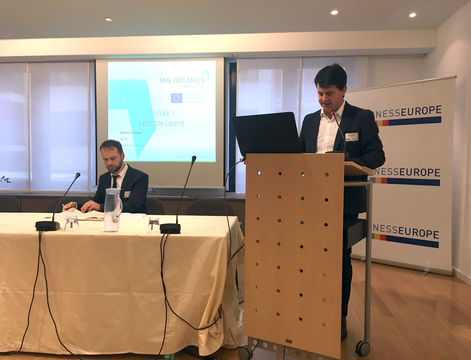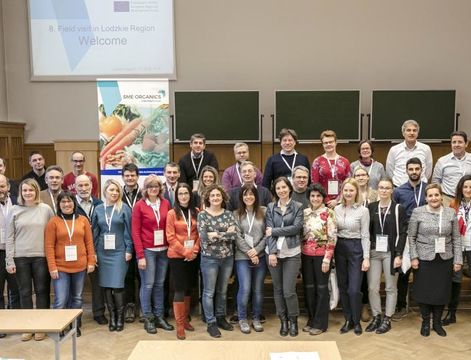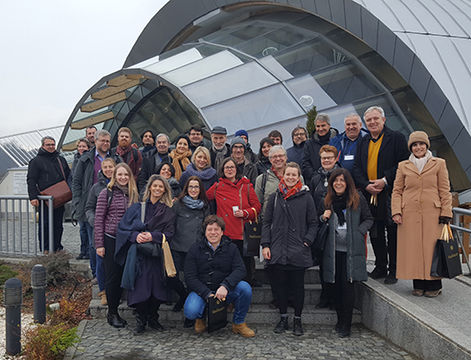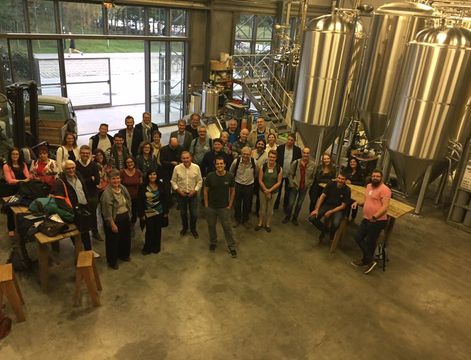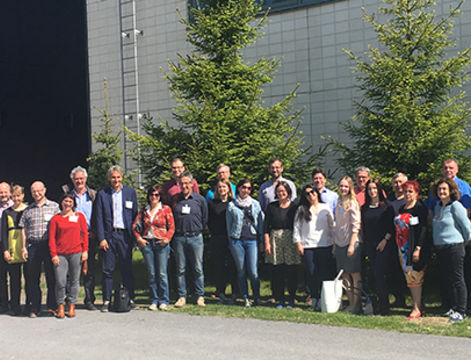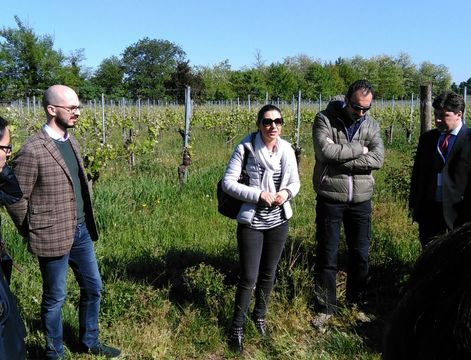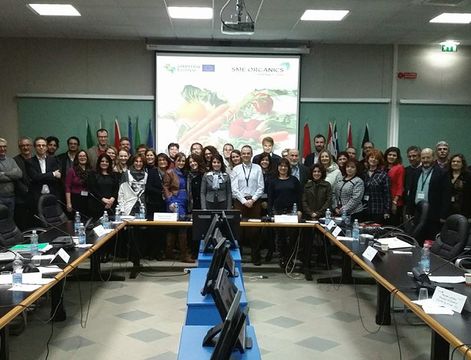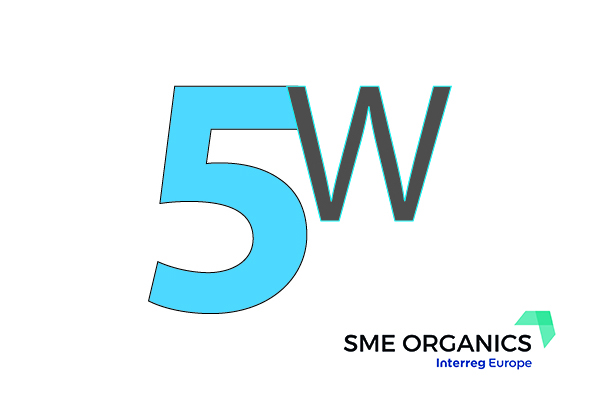Good practices by local stakeholders
Mr. Antti Saartenoja, Planning Director of Regional Council of South Ostrobothnia gave the opening session of 6th June and presented facts and figures of South Ostrobothnia region. The session continued with a presentation of Mrs. Pirjo Siiskonen, Chairman of Board of The Finnish Organic Association. Siiskonen introduced participants to the Finnish organic sector and represented how organic chain has been developed in South Savo region. Mrs. Leena Seppä, Senior officer for rural affairs in Finnish Ministry of Agriculture and Forestry, continued by presenting the Finnish More Organic! - Government Organic Program to year 2020. After Seppä’s presentation was possibility for free general discussion about organic policy issues.
The first good practice presentation was about highlighting professional kitchens: Steps to organics, by Mrs. Anu Arolaakso from EkoCentria. In Finland there are nearly 8 600 public kitchens that serves 890 million meals per year. The Finnish government has committed strongly to increasing the use of organic products. The goal of using organic food in professional kitchens is set to 20 % by the year 2020. Steps to Organic -program is a voluntary program for all professional kitchens in Finland, founded in 2002. The goal of the six steps program is to coach kitchens into a more sustainable development by gradually increasing the use of organic ingredients in their daily use. The program helps to collect data about the development of the use of organic products in professional kitchens and reinforces the chain of organic food production and marketing.
REKO-Circle is a good example of short supply chain developed in Finland by Mr. Thomas Snellman. REKO enables consumers to buy local or organic food products directly from the producers. There are 159 local REKO circles in Finland. REKO is self-organized system, based on interest, free and it is maintained via Facebook groups or mobile application. The aim of REKO is to offer fresh, valuable and pure food for consumers without go-betweens directly from producer to customer with right price.
The third presented good practice was about Organic food export and trade in Finland, by Mr. Erkki Pöytäniemi, founder of Organic Food Finland. Pöytäniemi talked about challenges and opportunities for success in organic export and represented some of the strongest organic products in Finnish export. Pöytäniemi also spoke about his own experiences in starting organic export and helping companies to become international.
After that was time for the last Finnish organic success story, JYMY organic ice cream. Mr. Erkki Mikola Chairman of Board of Suomisen Maito Oy Ab told about the passion of the little ice cream factory, the meaning of “happy cows” and organic for the entire company. The company produces totally 12 organic ice cream flavors and JYMY Lakritsi (liquorice) ice cream has been awarded in Nordic Organic Food Fair in Malmö Sweden the title of “Best New Organic Food Product & New Organic Brand in Scandinavia 2015”.
Visiting competitive organic SMEs – selected success stories
The first site visit was to The Hospital District of South Ostrobothnia catering services center. Director of the nutrition center Mrs. Kaija Mäkelä explained the biggest challenges of using organic products in such a big public kitchen. The needed amounts of raw material and public procurement process set special requirements to organic products. In the catering services, Mäkelä and approximately 50 employees do their best to achieve the 20% organic goal by 2020.
During the bus trip to the site visits, Mr. Kari Kaipainen CEO from SunSpelt presented the new and interesting operating mode of the company. SunSpelt produces spelt products and it aims at creating a new kind of network based company culture.
The second visit was to Riverhill’s Highland farm. The hostess and owner of the farm, Mrs. Johanna Rotola-Pukkila explained the reasons why she decided to establish an organic Highland cattle farm specialized in beef production and calvers in 2004. The gentle furry animals melted visitor’s hearts and it was delight to see cattle pasturing in natural environment freely and happily.
Merinomi Mill, owned by Mr. Olavi Hautala, has millproduction with spelt being the main raw material. Organic and conventional spelt flours are delivered to wholesales and restaurants. Merinomi does also contract milling and spelt peeling. Most spelt is supplied to buyers peeled and buyers do the continuation refinement.
The fifth Interregional Field Visit of SME Organics Project included also discussion and the development of Regional Organic Action Plans and two parallel workshops.
